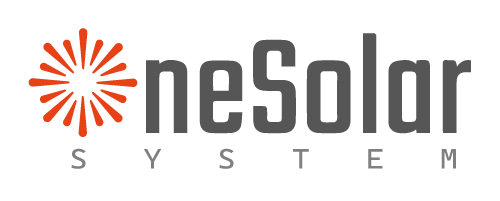Solar PV (Photovoltaic) technology converts light into electricity. It’s important to note that it’s light, not just sunlight, that is captured. This means that your solar panels will still generate electricity on cloudy days, although their output will be less than on bright, sunny days. Solar energy has been used for over a century, and today it’s a reliable and sustainable way to generate clean electricity.
Frequently asked questions
What is the role of the inverter in my solar system?
Inverters are critical for converting the electricity produced by your solar panels. Solar panels generate DC (direct current) electricity, but most appliances and the grid run on AC (alternating current). The inverter changes the DC to AC so your home can use it. We’re meticulous about choosing the right inverter and placing it in the ideal location to ensure your system runs efficiently. While many installers place inverters in lofts, we take care to choose the most practical and performance-optimizing locations for them.
How does my property use power from the solar system?
When your solar panels generate electricity, the inverter directs the power into your property’s electrical system at a higher voltage than that supplied by the grid. This means that when you turn on an appliance, your home or business will use the power generated by your solar system first before drawing any electricity from the grid. You can rely on the solar system for energy throughout the day, even when direct sunlight is not available.
How much electricity will my solar system generate?
The amount of electricity your system generates will depend on factors such as the size of the installation and the orientation of your roof. For example, a 4kWp system in Cornwall, installed on an unshaded, south-facing roof, can produce around 4,000 kWh per year. If installed on an east or west-facing roof, you can expect around 3,400 kWh annually. The average UK household uses about 3,200 kWh per year, so your solar system could cover all or most of your electricity needs. Using advanced software, we provide a detailed forecast based on your energy usage, helping you understand how much electricity you can expect to generate and how it will affect your electricity bills.
Will my solar panels still work on cloudy days?
Yes, solar panels will continue to generate electricity on cloudy days. Solar panels capture light, not just direct sunlight, so even on overcast days, they will still produce some energy. The output will be lower compared to a sunny day, but your solar system will still be working and producing power.
How long will my solar panel last?
Solar panels are designed to last for several decades. Most manufacturers offer warranties of 20-25 years, and although the efficiency of the panels may gradually decrease over time, they will continue to produce electricity for many years beyond the warranty period. Proper installation and regular maintenance can help extend their lifespan and maximise their efficiency.
Do I need to maintain my solar panel?
Solar PV systems are generally low maintenance. However, it is important to ensure the panels remain clean and free of debris to maintain optimal performance. Regular system checks will also help ensure everything is working as it should. At One Solar System, we offer monitoring and maintenance services to help you get the most from your solar system.
What happens during a power cut?
In the event of a power cut, your solar system will automatically shut down for safety reasons. This is to protect utility workers who may be repairing the grid. If you want to continue using solar power during a power outage, you can add a battery storage system to your setup, which will allow you to store energy for use during power cuts.
How are solar panels installed on my roof?
Solar panels are mounted using brackets that securely attach to your roof’s structure. The brackets are designed to withstand weather conditions and ensure the panels remain stable over time. We take care to ensure that the installation process is efficient and does not damage your roof.
Are there any government incentives or schemes for solar installations?
Currently, there are no direct government subsidies for solar panel installations. However, you can still earn money by exporting excess energy to the grid, and your energy supplier may offer incentives for this. There are also tax benefits and schemes available for certain types of green energy systems.

Don't wait any longer, take control of your energy today.
Get in contact with a member of the One Solar System team for a free consultation.

